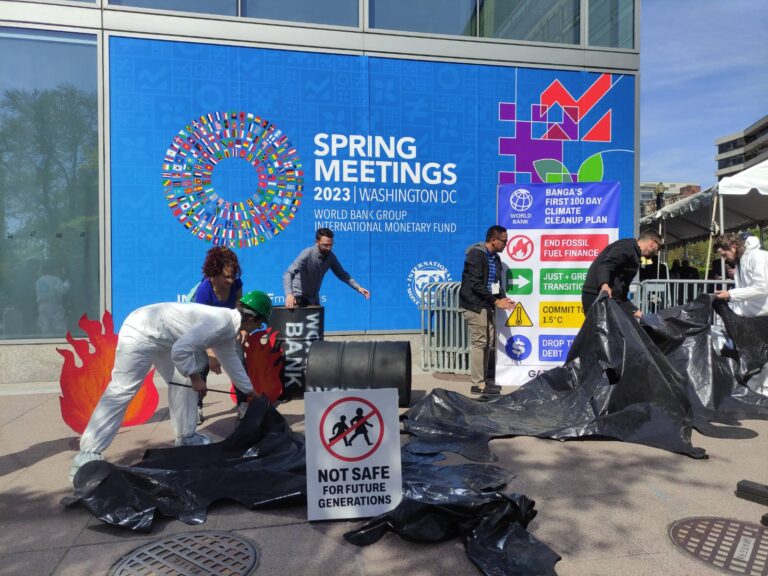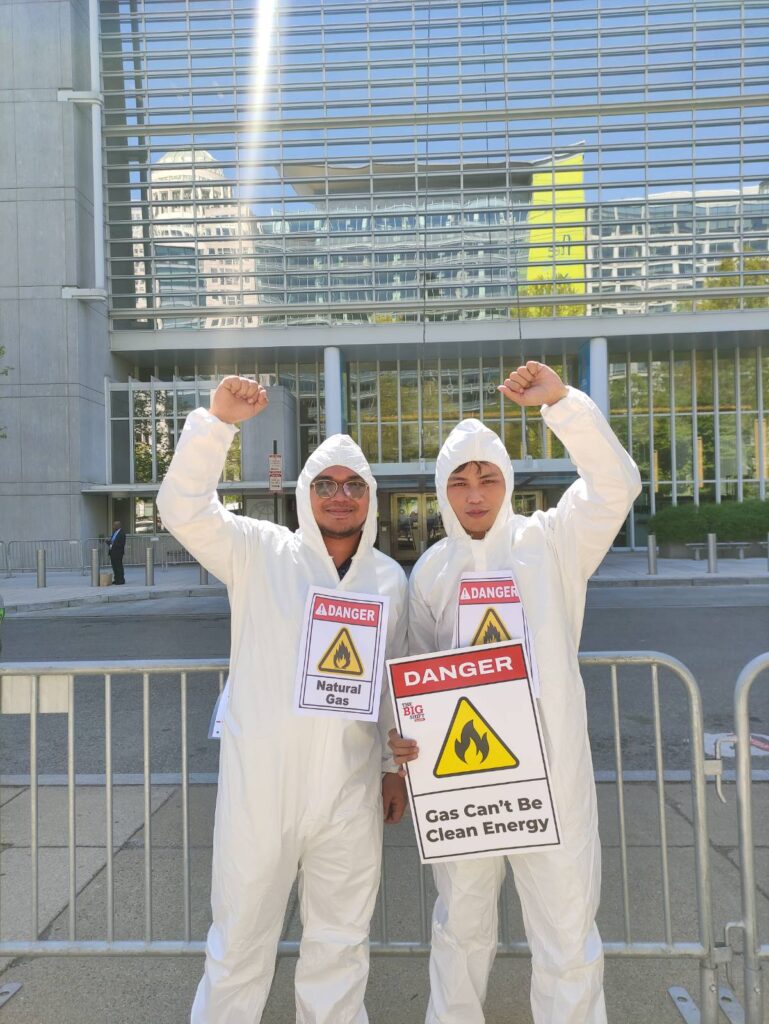IBON International Update
2023 IMF-WBG Spring Meetings
WASHINGTON DC, April 17 – From April 10 to 16, finance ministers, central bank governors, and representatives of civil society groups trooped to Washington D.C. for the week-long International Monetary Fund and World Bank Group (IMF-WBG) Spring Meetings. In the meetings, the WBG in particular looked into “evolving” its mission, operations, and financial models to supposedly align with global climate goals.
Prior to the meetings, the WBG released its alignment methodologies with the Paris Agreement, where it reiterated its pledge to divest from coal and oil. While the Bank failed to uphold these pledges, its methods explicitly left the door open for liquefied natural gas. The Bank justifies gas as a cheap alternative source of energy that would facilitate the transition to renewable energy.
However, promoting gas undermines the very accords the Bank wishes to uphold, as gas is still a fossil fuel and contributes to carbon emissions. This contradicts the International Energy Agency’s warning in 2021 and the Intergovernmental Panel on Climate Change’s report in March 2023, which say there is no more room for new investments in fossil gas if the world is to limit global warming to 1.5 degrees Celsius. Investing in gas will also crowd out resources for renewables, lock developing countries’ economies further into fossil fuel dependency, and delay the much-needed transformation of their energy systems.
This exclusion of gas does not fall far from the United States’ growing interest in gas exports. The country intends to construct 12 gas terminals by the end of the decade. Likewise, the US nominee for WBG president, Ajay Banga, blasted critics of the Bank by saying the Bank is heavily investing in renewables—a mere attempt to cover up its continued investments in fossil fuels, amounting to USD 1.3 billion every year.
The WBG continued investment in fossil fuels has sparked broad resistance. Big Shift Global, a campaign that calls for the shifting of energy finance away from dirty energy, spearheaded an action in front of the Bank’s headquarters on April 13. Critics slammed the Bank’s fossil fuel obsession and called for a comprehensive divestment from these energy sources.
The WBG’s Paris Alignment, while purporting to be a step forward for climate action, reveals itself as a means to continue business as usual with minor tweaks. As the Spring Meetings concluded, civil society groups committed to organise bolder actions to demand the Bank do more to end its support for all forms of fossil fuels, especially gas, and move towards real solutions and sustainable, community-led renewable energy systems.




